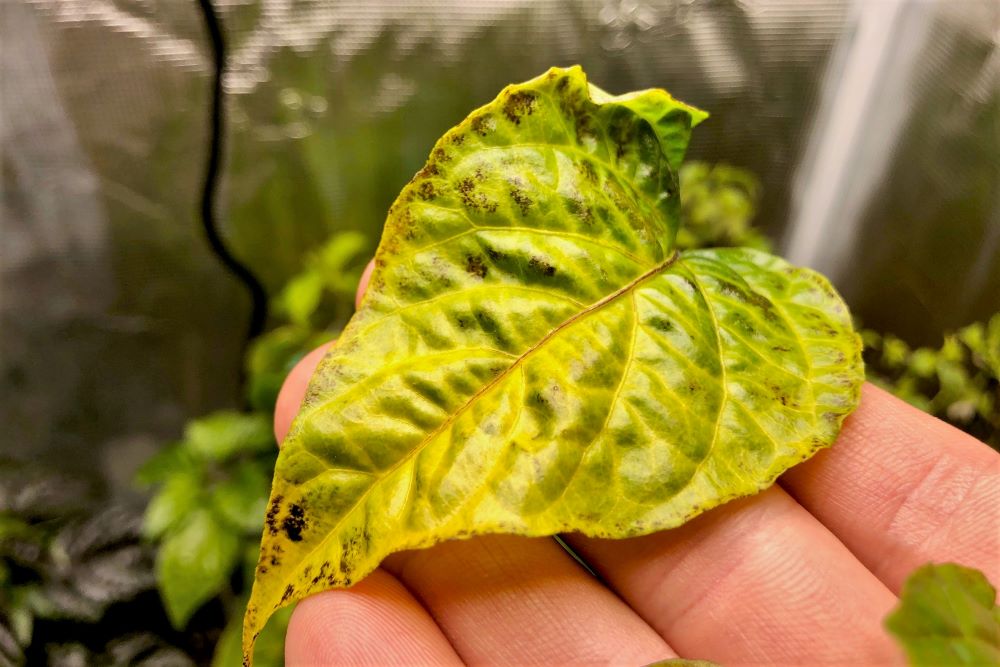Best Fertilizers for Peppers: Optimize Plant Health and Return
Best Fertilizers for Peppers: Optimize Plant Health and Return
Blog Article
Organic Vs. Synthetic Fertilizers: Which Is Best for Supporting Healthy And Balanced Pepper Plants?
In the realm of nurturing healthy and balanced pepper plants, the selection in between artificial and natural fertilizers stands as a pivotal decision with far-reaching effects. While both alternatives goal to supply necessary nutrients to support plant growth, the subtleties of their effect on the dirt, plant health and wellness, and the atmosphere spark a discussion that echoes throughout the gardening area. Understanding the unique advantages and possible mistakes of each fertilizer kind is important for pepper growers looking for to enhance their yields while keeping an eco-conscious and lasting technique.
Benefits of Organic Plant Foods
Organic fertilizers offer a lasting and environmentally-friendly technique to nourishing pepper plants, supplying important nutrients without the usage of synthetic chemicals. These all-natural fertilizers are acquired from organic resources such as compost, manure, bone meal, and algae, promoting dirt health and biodiversity. Unlike synthetic plant foods, organic options launch nutrients slowly, guaranteeing a constant and balanced supply for pepper plants to thrive.
One considerable benefit of natural plant foods is their capability to boost dirt structure and water retention. By improving dirt health, organic plant foods advertise helpful microbial task, which aids in nutrient uptake by pepper plants. Furthermore, natural plant foods reduce the danger of chemical run-off, shielding water sources from contamination and guarding the environment.
Moreover, natural fertilizers contribute to long-lasting dirt fertility by advertising the development of beneficial soil organisms. These microorganisms assist damage down natural issue, releasing nutrients in a form that is quickly available to pepper plants. best fertilizers for peppers. By cultivating a healthy and balanced dirt ecosystem, organic fertilizers sustain sustainable pepper growing techniques that profit both plants and the environment
Disadvantages of Synthetic Plant Foods
Artificial fertilizers, as opposed to their organic counterparts, present different downsides when made use of to nurture pepper plants, affecting both plant health and wellness and ecological sustainability. One significant disadvantage of artificial fertilizers is their tendency to leach nutrients from the soil quickly. This quick leaching can bring about vitamins and mineral inequalities in the dirt, creating plants to experience shortages or poisonings. Furthermore, synthetic fertilizers can damage advantageous soil microorganisms, such as earthworms and beneficial microorganisms, disrupting the dirt ecological community's equilibrium.
In addition, the overuse of artificial fertilizers can add to water air pollution. Excess fertilizers not soaked up by plants can wash away into water bodies, causing eutrophication, where algae flowers diminish oxygen levels in the water, harming water life. Synthetic plant foods are generally obtained from non-renewable resources, such as fossil gas, adding to carbon exhausts and environmental destruction during their manufacturing.
Nutrient Absorption Comparison
Efficient nutrient absorption More Bonuses plays an important duty in the overall health and development of pepper plants. When contrasting organic and artificial plant foods in terms More Info of nutrient absorption, natural plant foods have the advantage of providing an extra balanced and slow-release source of nutrients (best fertilizers for peppers). Organic plant foods contain a range of macro and trace elements that are not just useful for the plants yet also promote healthy dirt microbial activity, which aids in nutrient uptake. On the other hand, artificial plant foods frequently supply a fast launch of nutrients, which can lead to leaching and overflow, resulting in reduced nutrient absorption prices by the plants.
Moreover, natural plant foods improve soil structure and water retention capability, enabling pepper plants to accessibility nutrients extra successfully. This better dirt quality facilitates root development, enabling better nutrient absorption. Synthetic fertilizers, although initially enhancing plant development because of their high nutrient focus, may hinder long-term nutrient absorption by degrading dirt wellness with time.
Ecological Effect Considerations

On the other hand, artificial plant foods, although frequently even more concentrated and immediately readily available to plants, can have detrimental results on the environment otherwise applied effectively (best fertilizers for peppers). Their production calls for high energy inputs, bring about greenhouse gas discharges and adding to climate adjustment. Furthermore, the drainage of excess synthetic plant foods can contaminate water resources, leading to eutrophication and hurting marine communities.
Finest Fertilizer Practices for Peppers
To achieve this, it is important to follow best fertilizer practices customized to the details demands of pepper plants. One vital technique is to do a dirt test before using any kind of plant foods.
One more essential practice is to fertilize pepper plants at the right time. Typically, peppers gain from obtaining plant food at growing and then again when they begin to blossom. Over-fertilizing can result in nutrient imbalances and damage the plants, so it is crucial to comply with recommended application prices.
Furthermore, choosing a well balanced fertilizer with an NPK ratio that matches pepper plants' requirements is essential. Eventually, incorporating synthetic and natural plant foods sensibly can assist nurture healthy and balanced pepper plants while decreasing environmental effect.
Conclusion

Organic fertilizers use an environmentally-friendly and sustainable technique to beneficial pepper plants, offering necessary nutrients without the usage of synthetic chemicals. Unlike artificial fertilizers, natural options launch nutrients gradually, ensuring a constant and balanced supply for pepper plants to flourish.
Synthetic plant foods, in comparison to their natural equivalents, pose different downsides when made use of to nurture pepper plants, impacting both plant health and environmental sustainability. When comparing organic and artificial fertilizers in terms of nutrient absorption, natural plant foods have the benefit of supplying an extra well balanced and slow-release resource of nutrients.In addition, natural plant foods boost dirt framework and water retention ability, permitting pepper plants to access nutrients more efficiently.
Report this page